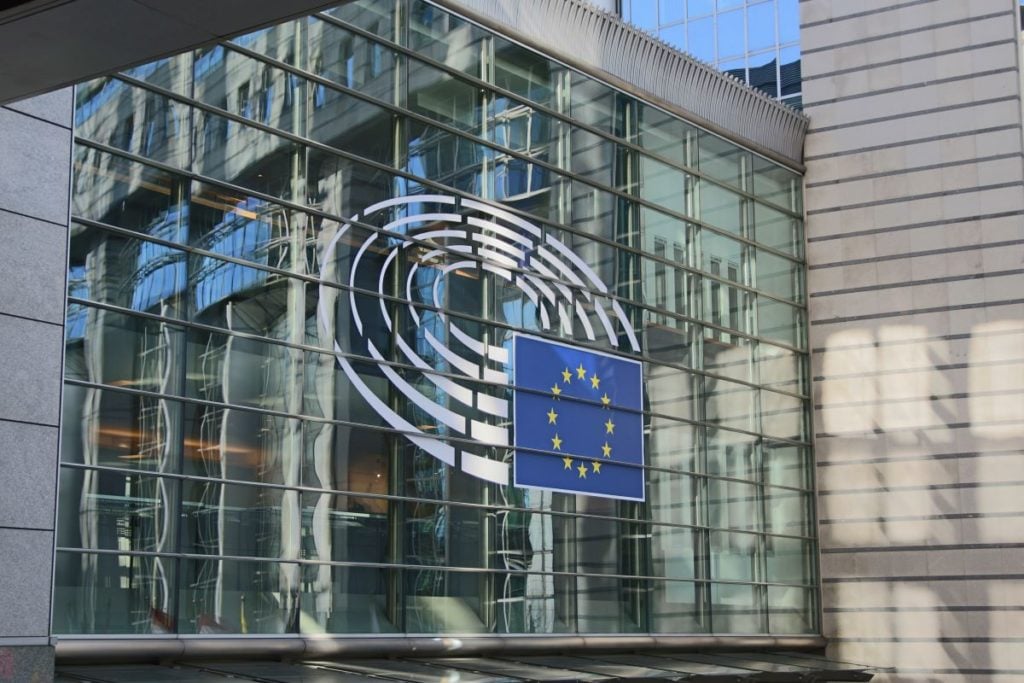
The European Parliament has approved new regulations prohibiting the sale, import and export of goods made using forced labour.
Member states and the European Commission will be able to investigate suspicious goods, supply chains and manufacturers. If a product is proven to have been produced with forced labour it will no longer be able to be sold or shipped in the EU market, with shipments stopped at the EU borders.
Unlock unlimited access for 12 whole months of distinctive global analysis
Photovoltaics International is now included.
- Regular insight and analysis of the industry’s biggest developments
- In-depth interviews with the industry’s leading figures
- Unlimited digital access to the PV Tech Power journal catalogue
- Unlimited digital access to the Photovoltaics International journal catalogue
- Access to more than 1,000 technical papers
- Discounts on Solar Media’s portfolio of events, in-person and virtual
Or continue reading this article for free
Manufacturers of banned goods will have to withdraw their products from the EU and donate, recycle or destroy said goods. Non-compliant companies could be fined, whereas goods will be allowed to re-enter the EU once the company removes any forced labour from its supply chains.
The regulation was adopted with a wide margin, with 555 votes in favour, six against and 45 abstentions. The next step for the forced labour ban regulation is to receive a final formal approval from the EU Council, and then be published in the Official Journal. Member states will then have to start applying the regulation in three years.
The passing of the legislation drew support from the European Solar Manufacturing Council (ESMC), the trade body representing manufacturing in the European solar sector, which urged European legislators to enforce a forced labour ban back in September 2023.
“We welcome the decision of the European Parliament,” said ESMC sustainability policy director Jens Holm. “This new regulation should put an end to all imports of solar modules or components from areas where state-imposed forced labour takes place.”
“In the same manner as ESMC welcomes the new law, the slow implementation process raises concerns. According to today’s decision it will take three years before the regulation is fully operational. That is far too long, and the ESMC expects the EU and its member states to start to work in the new law’s spirit already today.” added Holm.
Rapporteur for the International Trade committee, Samira Rafaela, said: “This regulation fosters EU and international cooperation, shifts power from exploiters to consumers and employees, and offers possibilities for remedy for victims. It also transforms trade policies into a greener and fairer future.”
Following the UFLPA in the US
The news follows the implementation of the Uyghur Forced Labor Prevention Act (UFLPA), which the US implemented in June 2022, and resulted in US customs detaining 2GW worth of solar PV modules in 2022.
Coinciding with the implementation of the UFLPA, the European Parliament passed a resolution in June 2022 condemning human rights abuses in China’s Xinjiang region, while calling for the European Commission to enact tougher trade sanctions on the country.
In October 2023, the EU Internal Market and International Trade committees then adopted a draft regulation to ban products with forced labour, while last month reached a provisional agreement on the regulation.
Last February, during a conference organised by the ESMC, speakers emphasised on a “reversal of the burden of proof” similar to the UFLPA, which requires suppliers shipping products to the US to prove their supply chains are free from exposure to forced labour.
Earlier this year, advisory body Clean Energy Associates (CEA) wrote that it expects the US to enforce more restrictions on Chinese companies and products in 2024.
